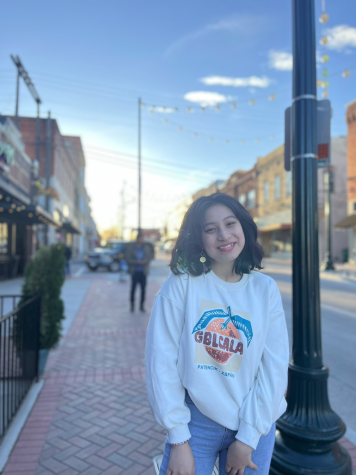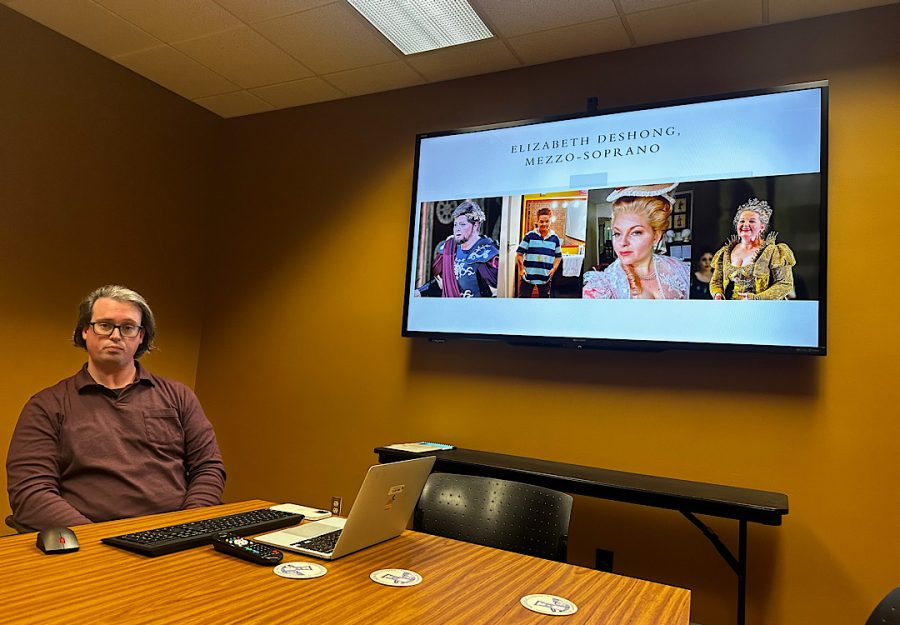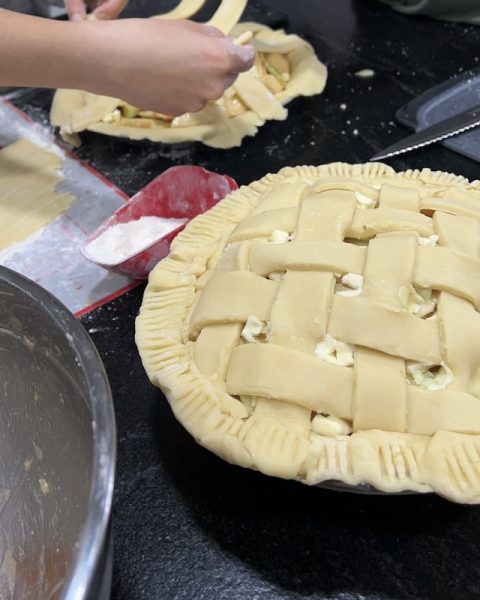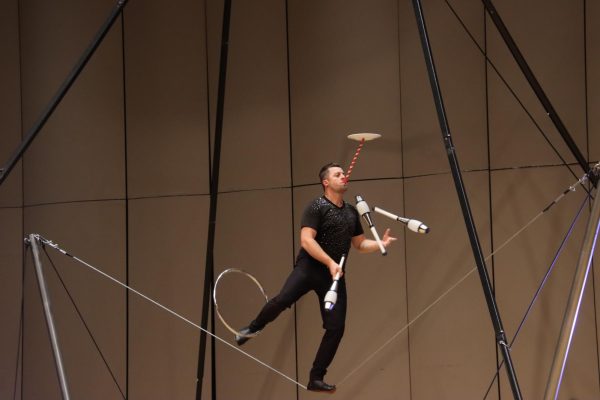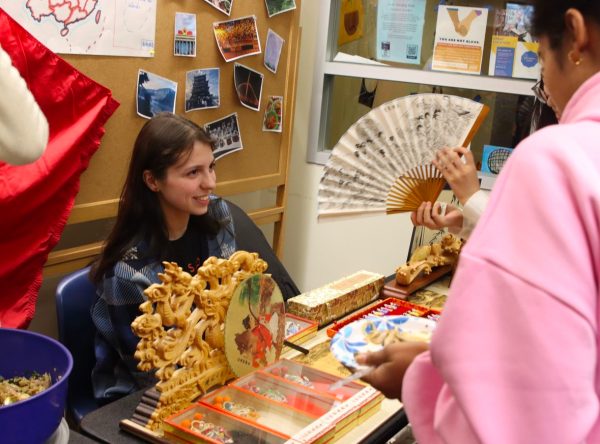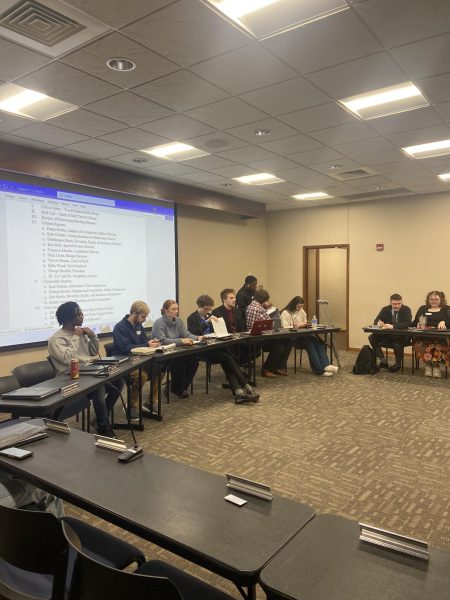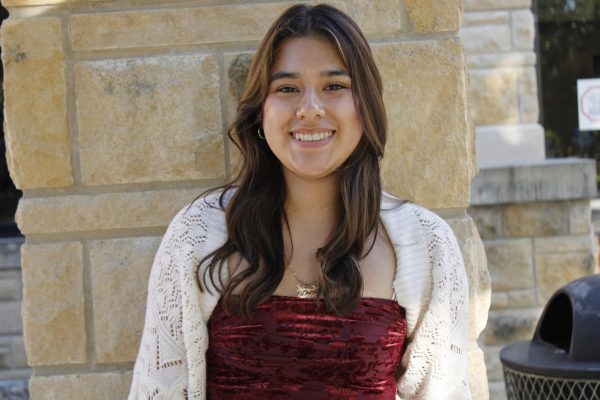Brown Bag lecture on gender held
DeSota discusses Elizabeth Deshong as he talks about gender roles in opera. The event was held Nov. 16 in the Cottonwood room in the Memorial Union.
Gender Brown Bag is an open forum for sharing and discussing research around gender and sexuality. Joseph DeSota, assistant professor of applied voice and opera, hosted a Gender Brown Bag lecture where he talked about the use of gender for dramatic purposes in opera. The event was held Wednesday, Nov. 16 in the Cottonwood room in the Memorial Union.
In this specific session, DeSota lectured on the history of opera and how different gender roles have played various parts in the production of opera. He also talked about the intricacy of gender in opera and how it has developed throughout the years.
“There’s a lot of complexity to all of the different facets of the gender of an actor and how they are portraying either their own gender or a different gender on the stage,” DeSota said.
DeSota then talked about how opera can fall under one or more of three different themes: sex, death and politics. He also explained how pants roles (one in which an actress appears in male clothing) were very common and how the portrayal of females by male actors was mainly “grotesque.”
DeSota also demonstrated various examples of such occurrences as he showcased different orchestral pieces such as “Carmen” by Georges Bizet, “Hansel and Gretel” by Engelbert Humperdinck and many others. He then focused his lecture on a singular orchestral piece called “As One.”
“As One” is a chamber opera by composer Laura Kaminsky, librettist Mark Campbell and film producer Kimberly Reed about a transgender person’s search for self-identity. DeSota described it as one of the strongest portrayals of gender on stage and an important work for opera.
“We see gender portrayed on stage, but they don’t talk about gender,” DeSota said. “’As One’ talks about gender and what it means to Hannah, the main character of the show, as she is transitioning.”
DeSota also explained how he wants opera as a medium to start addressing what is happening politically and socially while making a statement.
“We can choose to change history with our own medium,” DeSota said.
Lindsey Ibanez, assistant professor in sociology, also acknowledged how Brown Bags are cultivating the culture of shared knowledge and discussing issues. She hopes that students of Washburn find their role models and mentors through these lectures as she did during her undergraduate years.
“I think when I was attending lectures as an undergraduate, it was partly about finding models and mentors,” Ibanez said. “It was just really interesting to see people doing research and people sharing big ideas, discussing things that were exciting, interesting and challenging.”
To reach out to DeSota to talk about opera or applied voices, his email is [email protected].
Edited by Rakesh Swarnakar, Alijah McCracken
Your donation will support the student journalists of Washburn University. Your contribution will allow us to purchase equipment and cover our annual website hosting costs.
